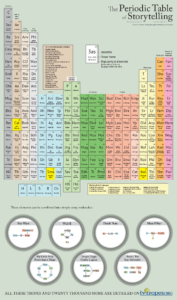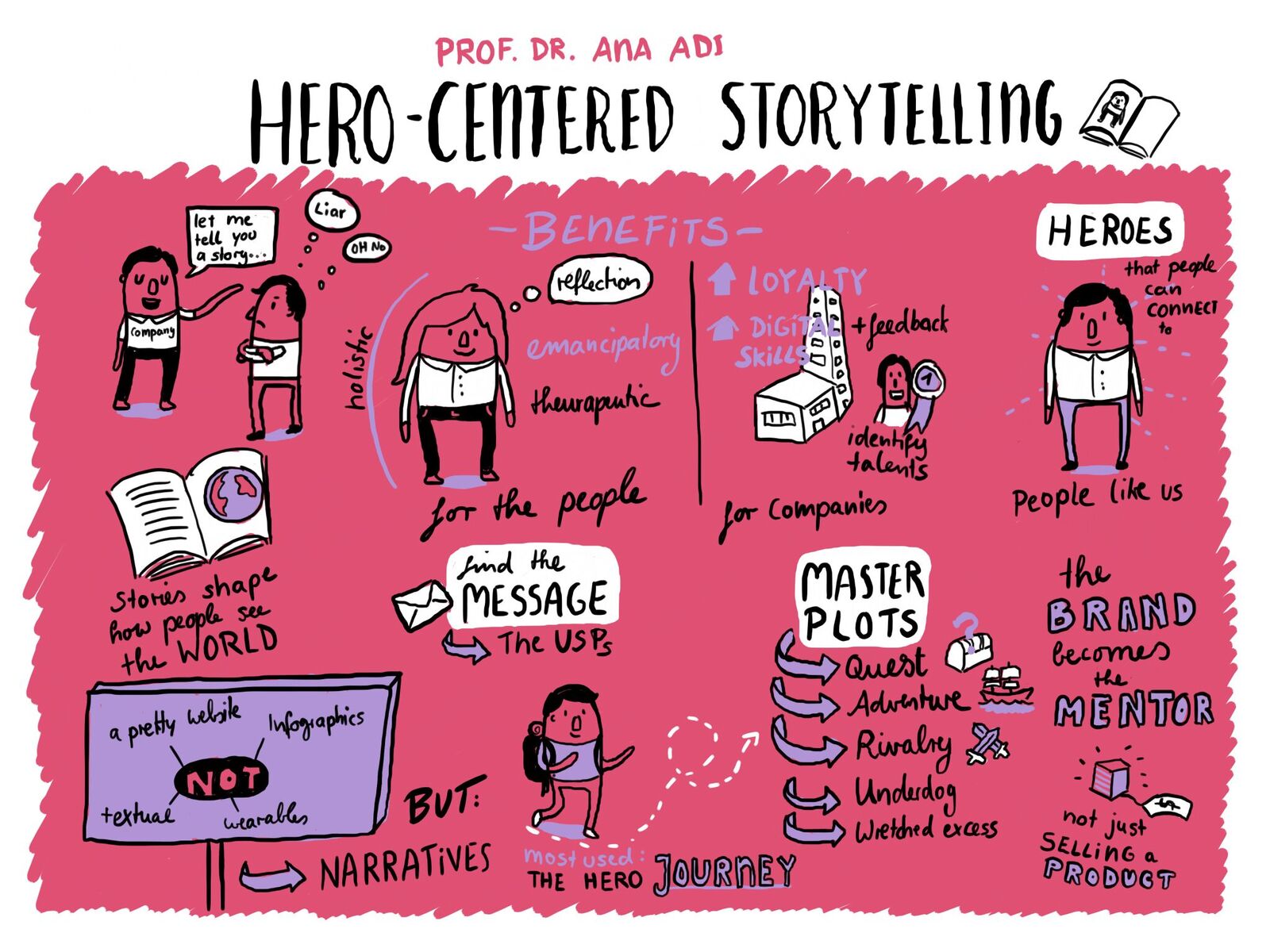This year’s European Communication Summit has focused on collaboration. I had the pleasure of joining the summit as a speaker again this year and thus had a chance to revisit and renew a topic close to my heart, my research and something I had spoken about before.
Storytelling as narrative
The talk of this year was therefore a reminder of the value storytelling can have for organisations: both in terms of enabling them to share their values and journey but also to enhance loyalty, build trust and demonstrate empathy. But my view of storytelling is that is narrative NOT a gizmo, a buzzword or fancy technology, it is not a sales exercise, a beautifully executed website or a branding game.

When storytelling is seen as narrative, the balanced mixture between the message (or the learning point of the story), the plot (how is the story told), the conflict and characters is essential. The Periodic Table of Storytelling created by James Harris gives you a wonderful and rather comprehensive resource into how these can be linked and so does, in a much more condensed way, Speakerhub.
Getting the plot right
There is a difference however in between corporate/organisational stories and those we read in novels, see in memorable ads or see on the screen (big or small).
Successful corporate and organisational narratives that engage present a shift of paradigm from “the magic product/service” to “the mentor” to a customer’s journey.
Jonah Sachs says it extremely well in his “Winning the Story Wars” and so does Sinek in his TED talk about finding and defining organisational value.
Also, in corporate and organisational settings there are some plots that would be most likely to be used: these include quest, adventure, pursuit, underdog or wretched excess. Kent (2015) reviews them (and more) in his article.
Finding the heroes
This is perhaps the easiest part. In a time when the “peer” reigns (and the reputation and/or credibility of previously authoritative figures is in decline), the heroes must be “people like us” and their stories must be “like ours”.
